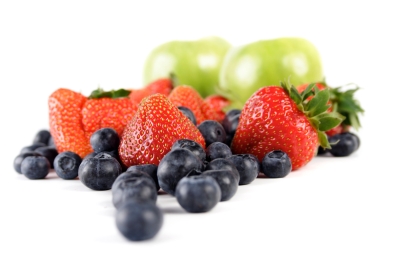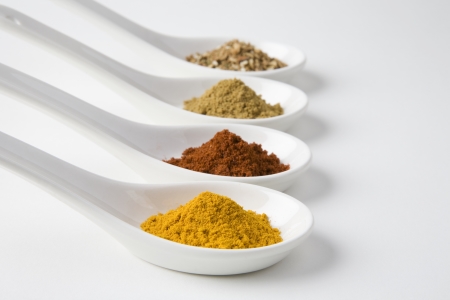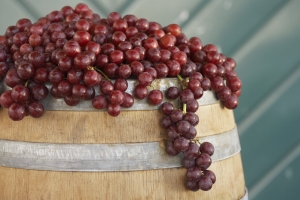
Are the best antioxidant supplements on the market? Yes, doctors recommend antioxidants as the prevention against free radicals, avoiding sudden aging and deterioration of body systems. Some of the antioxidants come with diet.
Antioxidants help with aging, inflammation, and chronic diseases. Antioxidants help the body to repair after attacks of free radicals that cause premature aging and inflammation.
Before talking about antioxidants, it would be good to start with oxidation.
What is the heck the oxidation?
You know that atoms or molecules have electrons that spin in orbit around the nucleus. It is a natural process. Unfortunately, some agents, such as oxygen or chlorine, can strip an electron from the atom. These molecules or atoms become defective and useless. Cells die and vanish. It is the reason why aging occurs. It does not matter what it is: the human or metal.
You see how iron rusts. It does not take a long time to turn metal into corroded metal.
Oxidative stress happens when natural and artificial radiation affects cells. Free radicals begin to form when electrons are stripped from atoms. These free electrons search for prey because they cannot be unattached. They bombard new molecules ,taking the next particle. This process starts the chain reaction. Without defense systems such as antioxidants, the body would suffer intensely
Antioxidants: What is it?
Nature has natural defense mechanisms against oxidation. Photosynthesis is one of the protective ways. However, it counts just for plants. How about humans?
We are lucky that we have these barriers:
- Physical barriers that contain free radicals in their places of production within cells
- Enzymes that neutralize reactive oxygen species(ROS)
- Substances from the diet such as vitamins C and E. These vitamins can donate electrons to free radicals, stopping them from harming cells.
- Repair mechanisms that help fix damage from the oxidation of DNA, proteins, and membranes
- Master control genes which are activated when the body is in need.
Antioxidants help the body to repair and detoxify after attacks of free radicals. The speed of metabolism plays a role in the number of free radicals and oxidative stress. When slow metabolism, slow is the production of free radicals.
We can help ourselves take an appropriate diet full of antioxidants such as enzymes, vitamins, minerals, and phytonutrients.
The best antioxidant supplements
The market is full of claims that this or this supplement will make miracles. I prefer advice from scientists and doctors. Let’s check out what do they offer for us :
- Vitamin C
- Vitamin E
- Beta-carotene
- Green tea extracts
- Curcumin
- Pycnogenol
- Indole-3-carbinol (I-3-C)
- Juvenon
- Co-Q-10 (coenzyme Q or ubiquinone)
- Alpha-lipoic acid
- Resveratrol
These antioxidants are supported by science and are used to protect from free radicals and oxidative stress.
Okay, let’s start to check closer to these antioxidant supplements.
Vitamin C
What does vitamin C?
- Strengthens blood vessels
- Helps heal wounds
- Increases resistance to invaders
- Helps maintain the production of collagen
- Aids for healthy gums
Vitamin C is famous and is praised as an effective antioxidant. Unfortunately, our bodies do not produce vitamin C. We must get it from the diet. However, how much vegetables and fruits can you consume during the day? Vitamin C supplements would solve this problem.
There is some history about vitamin C. The scientist, who discovered vitamin C and got the Nobel prize, was Albert Szent Gyorgii. He finds out that ascorbic acid or vitamin C does not have the same active properties when it is stripped to the one formula. Proteins, enzymes, and minerals surround ascorbic acid in nature. Think about citrus fruit. You do not consume just ascorbic acid. You eat the whole fruit, which is full of various nutrients. This composition gives us benefits.
Unfortunately, the discovery of Albert Szent was adopted by companies. They started to produce vitamin C synthetically. The difference between vitamin C from whole food and synthesized vitamin C is enormous.
Decide for yourself. Pharma companies use hydrogenated corn sugar, usually from GMO plants, affected with acetone. As I know, acetone is used for the removal of nail polish.
The company Grown By Nature produces vitamin C from organic citrus fruit concentrate.
Do you see a difference? Organic components are friendly to our bodies. Chemicals are chemicals, nothing more.
Vitamin E
How does vitamin E work?
- Protects red cells from oxidation
- Participates in the immune system
- Protects cell membranes from free radicals
Vitamin E does stop the attack on reactive oxygen species. Without protection, oxygen could go inside the cell through membrane or fat. You would ask, what is about fat? Lipid molecules react with reactive lipid radicals to form stable products.
Interestingly, vitamin E has many forms. Vitamin E belongs to a group of compounds. They include both tocopherols and tocotrienols.
Dr. Andrew Weil recommends the dose of vitamin E to be 80 to 160 milligrams of the whole complex.
Vitamin E must consist of tocopherols and tocotrienols because it provides the benefits from Nature. In nature, you can find the complex of vitamin E. It includes eight molecules: alpha-, beta-, gamma-, and delta tocotrienols.
Beta-carotene
Beta-carotene is a precursor for vitamin A. However, it is not advisable to use it alone because it can work as a pro-oxidant and increase cancer risks for some people, such as smokers and ex-smokers.
Beta-carotene must be in a multivitamin of high quality together with alpha-carotene, lutein, zeaxanthin, astaxanthin, lycopene, and others.
Green tea extracts
Green tea is known thousands of years ago. It originated in China but now green tea spread in the whole world. Asia produces green tea too.

Green tea contains phytochemicals. They consist of polyphenols and caffeine.
Polyphenols contain:
- Epigallocatechin gallate ( EGCG)
- Epicatechin gallate
- Epicatechins
- Flavanols
These constituents act as antioxidants, anticarcinogens, anti-inflammatory, and anti-radiation agents.
Green tea contains flavonoids. They are:
- Kaempferol
- Quercetin
- Myricetin
Active ingredients in green tea act as antioxidants.
Curcumin

Curcumin is the main constituent of turmeric in the ginger family. It is widely used in Asia kitchens, but now, starting with Timothy Ferris’s morning habits, continents enjoy the benefits of turmeric tea and turmeric supplements.
Turmeric has a beneficial effect on Alzheimer’s. Individuals who live in rural India have one of the lowest rates of this disease globally.
When looking for turmeric supplements, pick organic because fresh products without chemicals work best.
Pycnogenol

Pycnogenol is the product of the bark of the pine tree. It is a French maritime pine bark extract. Pycnogenol is a combination of natural and robust antioxidants.
Pycnogenol contains active bioflavonoids. According to manufacturers, Pycnogenol fights free radicals, which are a reason for deterioration and aging.
Bioflavonoids help the immune system stay strong.
Indole-3-carbinol
Indole-3- carbinol or I-3-C is found in cabbage family vegetables. I-3-C is a phytonutrient. This antioxidant can help reduce breast cancer risk. It happens by influencing estrogen metabolism.
Cabbages, kale, or Brussels sprouts are tasty. However, it is better to take supplements. We can not eat so many vegetables and get the required amount of I-3-C to prevent cancer.
Supplements from health stores can help solve it. Dr. Andrew Weil recommends I-3-C for women to use as a dietary supplement.
Juvenon
Juvenon is a product created by Bruce Ames, a professor of biochemistry and microbiology at the University of California, Berkeley. He is an expert on the causes and prevention of cancer.
Bruce Ames discovered that rats fed with dietary supplements such as alpha-lipoic acid(ALA) and acetyl-L-carnitine (ALCAR) become energetic, and their brain functioned better. Rats looked like young animals.
You would think that the fountain of youth was discovered. Who knows, but Bruce Ames established his company, and the product is called Juvenon.
The secret is in the enzymes which help mitochondria produce energy. Besides it, it decreases insulin resistance and helps to deal with complications of diabetes, such as peripheral neuropathy.
Co-Q-10
The body produces coenzyme Q. It acts as an antioxidant and can increase oxygen usage at the cellular level.
Coenzyme Q increases the function of heart muscle cells.
Dr. Andrew Weil recommends it for cancer, diabetes, and gum disease patients. Sixty milligrams per day of the newest coenzyme Q is the recommended dose from Dr. Andrew Weil.
Caution: when you look for the supplement, you need to see how much active ingredient is in it. Bioavailability is essential because when the active ingredient is absorbed by 99 percent, we get most of the benefits.
I would compare it with juice. Would you like to have a glass of 100 percent orange juice or diluted with water and full of artificial sugar?
Alpha-lipoic acid
Alpha-lipoic acid has few benefits. It helps:
- Decrease insulin resistance
- Increase the body’s antioxidant defenses
Individuals can benefit from alpha-lipoic acid if they complain about metabolic syndromes such as HDL cholesterol, the tendency to get fat around the abdomen area, or high blood pressure.
ALA is a dietary supplement. Starting from 100 milligrams a day and taking up to 400 milligrams a day is the recommended dose by Dr. Andrew Weil.
Resveratrol

Resveratrol is a natural antioxidant found in the skin of grapes. Researchers found out that grapes produce more resveratrol when they grow under stressful conditions. Cold, rain, lack of nutrients, and attacks of fungi create an unpleasant environment for grapes. Luckily, grapes survive and have significant amounts of resveratrol in their skins.
Researchers discovered a gene called daf-2. This gene seems to be a master regulator of many other genes that deal with metabolism and defense.
Later on, the gene called sir-2, which mediates the response to restrictions of calories, was discovered. When living beings eat less, they live longer and have increased body defense. Scientists looked for a substance that could activate gene sir-2 without starvation. This material is resveratrol, the component of grape skins in red wine. Resveratrol was responsible for the health benefits of red wine.
My recommended antioxidants
- Vitamin C: www.grownbynature.com.
- Vitamin E: www.grownbynature.com
- Beta-carotene: from Solaray
- Green tea extracts: from True Veda
- Curcumin: from True Veda
- Pycnogenol: from Horphag Research
- Indole-3-carbinol: by Thorne Research
- Juvenon: by Juvenon
- Coenzyme Q: by www.grownbynature.com
- Alpha-lipoic -acid: by Now
- Resveratrol: by Now
Conclusion
Antioxidants play a role in our well-being. Being healthy is not a privilege; it is a necessity. We must be robust to enjoy life, help others, and create a better environment for ourselves and our children.
Antioxidants do not harm. They protect us from toxins, pollution, stress, and invaders such as bacteria. The immune system does not mind if we help her deal with the burden of civilization, such as radiation, inadequate nutrition, and stress.
Taking antioxidants for our well-being will provide the body with nutrients vital for the metabolism, defense, and immune systems.
Leave a Reply